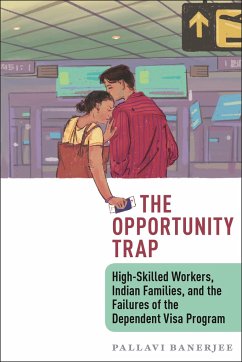"This book explores how Indian immigrants grapple with experiences of being workers and being people as they migrate with their families to the U.S. for work. Drawing on extensive qualitative data from in-depth interviews, observations, and archival research, this is the first book to compare the work and family lives of two distinct groups of Indian immigrants--male high-tech workers and female nurses. Relocating with their spouses who arrive on H-4 dependent visas, the author unravels the dissonance between the state's perception of the migrant skilled worker and the immigrant subject's tribulations when negotiating the contradictory expectation of being ideal citizens/ workers/families without having the security of permanence in the U.S. The author also shows how restricting the spouses of temporary workers, who are on dependent visas in the U.S., from working for pay, constrain and fracture individuals and their families leaving many to refer to the dependent visas as "vegetable visas" and "prison visas." This book reveals how visas policies strip women and men of basic rights within the home, at the workplace, and in civil society by creating gendered and racialized structures of dependence comprising the state, work organizations, transnational global processes, and migrant workers and their families. Visa policies that are legally gender and race neutral, in fact, have gendered and racialized ramifications for visa holders and their spouses. Those whose worlds are tied to these visas struggle to negotiate their lives as they are legally governed by what Banerjee calls a visa regime embedded in a gendered and racialized system of oppression."--
Hinweis: Dieser Artikel kann nur an eine deutsche Lieferadresse ausgeliefert werden.
Hinweis: Dieser Artikel kann nur an eine deutsche Lieferadresse ausgeliefert werden.








